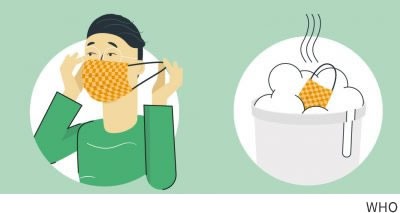-
How to put a face mask on
-
Your hands must be clean before touching a new or freshly washed mouth mask. Handle the mask by its ear loops; never touch the main body.
Once the mask is on, make sure that it fits your face well. Face masks with a metal nose strip can be shaped for a better fit on the upper part.
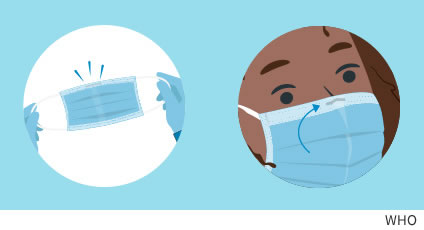
-
How to wear a face mask properly: should a face mask cover my nose or only my mouth?
-
A face mask must cover both your mouth and nose, fitting your face from chin to nose. Wearing a mask with the nose out does not protect you or others and it is therefore useless.
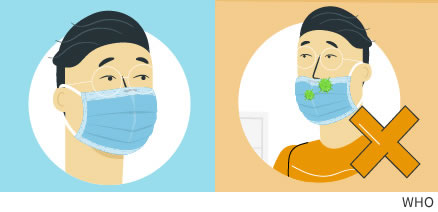
-
How to adjust a face mask while you are wearing it
-
Never touch the main body of the mask while wearing it, especially with the hands dirty. Always use the side ear loops to adjust the mask, making sure that it fits the face well without making it hard to breath.
Taking a face covering on and off can also increase the risk of contamination, the WHO says.
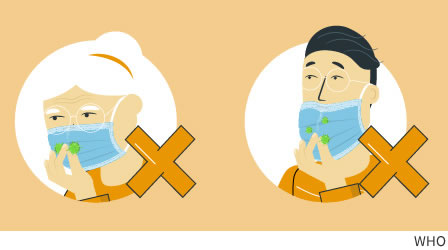
-
How to remove a face mask
-
Handle the mask by the side ear loops to remove it; do not touch the main part of the mask, not even the inner side: it has to stay clean in case you want to put it on again.
Always wash your hands with soap and water before touching the mask.

-
Where to throw a used disposable face mask
-
You can throw a used disposable mask in the residual waste. Look for the grey containers in the stations and on the platforms of public transport.
-
How to wear a face mask with glasses
-
Here is a tip to wear a face mask while also wearing glasses, and prevent these from fogging. Before putting the mask on, rub some soap - or even better, shaving foam - on the lenses. Then wipe with a soft fabric. The detergent produces a protective layer which prevents any steam from forming.
-
How to wear a face mask with a beard
-
The American Centers for Disease Control and Prevention (CDC) have made a comprehensive infographic showing the facial hairstyles that are compatible with filtering facepiece respirators. Make sure to check it out.
-
I have trouble breathing with a face mask. What can I do?
-
First of all, make sure that you are wearing the mask properly. While leaving the nose out is not a solution, you can choose a face mask that, while protective, is made for optimal breathability and comfort.
-
How long can I wear a face mask?
-
Common face masks should not be worn for more than 3-4 hours. While breathing moisture and dirt accumulate, which can promote the proliferation of bacteria and other harmful agents.
Do not put a mask on if it looks sweaty or dirty. In such a case the mask needs to be thrown away, or washed.
-
Where to keep a face mask while not using it
-
In many European cities face masks are required in shops, bars, offices and in other situations where no social distancing can be kept. That means that you would have to put the mask on and off multiple times; where to store it while not wearing it?
While you are not wearing a face mask, you can store it inside a plastic or paper bag for short periods before using it again.
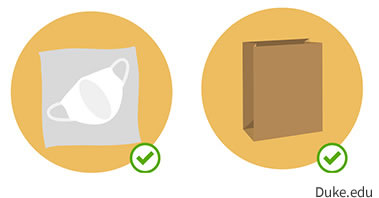
-
How NOT to use a face mask
-
The WHO advocates against the creative usage of face masks:
A face mask shouldn’t be worn under the chin, where sweat and dirt also ends. If you are in a bar having a drink, just keep the mask in your hand making sure to hold it by the earloops. Do wash your hands before putting the mask back on.
To take your mask temporarily off, do not store it over the elbow nor hang it to your ear; that would expose the inner side to dirt. There’s also the risk that the mask falls to the ground. In such a case do not put your mask back on.

-
How to wash a reusable face mask
-
Wash your reusable masks with soap and water; you can also put it in the wash machine with detergent at 40 °C. It is not advised to put a face mask in the dryer.
